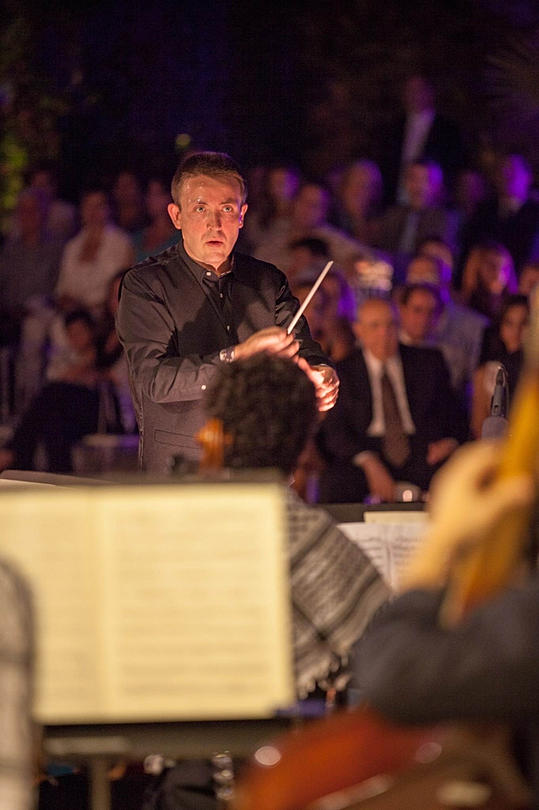In a two-part blog Rob Edgar, questions conductor Tom Hammond and composer James Francis Brown about the world of amateur music-making.
Part 1
Tom Hammond airs his views – informed by a wealth of experience conducting professional and amateur both nationally and across the globe.
Rob Edgar: Is there a 'typical' amateur musician? If so, what do they want and need from their musical activities?
Tom Hammond: There is, of course, great diversity in the amateur music community, both in terms of musical interests and technical ability.
We tend to think of ability first when talking about amateurs, but there is danger in assuming an amateur isn't as 'good' as a professional, and I know of several who would truly thrive in the professional world.
There are many players who have had professional training, but have for various reasons diverted into other careers. Of course one also finds people who haven't had much experience, haven't had lessons since school, or have little spare time to practice, but what is common is that nobody takes to a stage intentionally to perform at anything other than their best, and any musician is thrilled by achieving the highest possible standards in concerts.
In terms of the music they want to perform - this is as disparate as one would expect. Great works of the canon of course, but there is also curiosity about less well-known composers, 'forgotten' works by the Masters, and contemporary music.
RE: How responsive are players and singers to the idea of unfamiliar repertoire?
TH: The whole of the classical music world is institutionally conservative - just look at the programmes in our major concert halls and Festivals. And a large part of the reason why is, in the words of Bill Clinton...the economy, stupid.
Amateur music making still costs money, and many rely on Box Office income for their survival. Add to this that curious phenomenon of wanting to listen to or perform music we already 'know' (witness the huge popularity of concerts of music from computer games!) and the chances of enthusing management or performers about new music can diminish.
I would add on a personal note that some composers and compositional styles in the last fifty years have given new music a bad name, perhaps needs a separate blog to discuss that!
I would say that amateurs are curious, but generally finding reasons not to perform new music seem to be easier.
RE: Do we need new music for amateurs? Isn’t there enough music to choose from already?
TH: Yes we do. We need new music for everyone, amateur or professional:
For composers, there are a number of exceptional amateur ensembles in the UK who can give splendid performances of new music and make composers very happy. Frankly, written with consideration and rehearsed with skill, even less capable groups can produce moving, memorable performances.
For performers, composers can become valued members of music communities through collaborative projects, and help to attract new audiences to their ensembles, so there is symbiosis in that sense also.
I have been fortunate enough to commission and première music that has been enthusiastically received by both players and audiences; I know that this has been in large part due to in part to carefully matching composers with specific ensembles.
Rob Edgar: How can we safeguard the future of amateur orchestral and choral music-making?
Tom Hammond: This is a burning issue: Whilst the major conservatoires continue to recruit healthy amounts of the very best young talent each year (albeit with increasing numbers of non-UK students), below that level we are now feel the chill winds of empty music classrooms up and down the country. Some local authorities have little or no ensemble provision when only twenty years ago there were flourishing youth activities, and these were the tributaries from which the thousands of non-professional choirs and orchestras have been fed over so many decades.
So, first and most importantly we must all continue to fight the corner of music education as hard as we can. Then, we need to see past preconceived notions of 'standard' and find ways to encourage and support performances. Go to a concert, post about it on social media afterwards, let them know they have an audience that's interested in what they do. This always goes a long way, and will help to nurture the enthusiasm of people who commit hugely to their art form, and help sustain music for everyone around the UK.
More information about Tom Hammond can be found at his website.
Read part 2 here


No comments:
Post a Comment